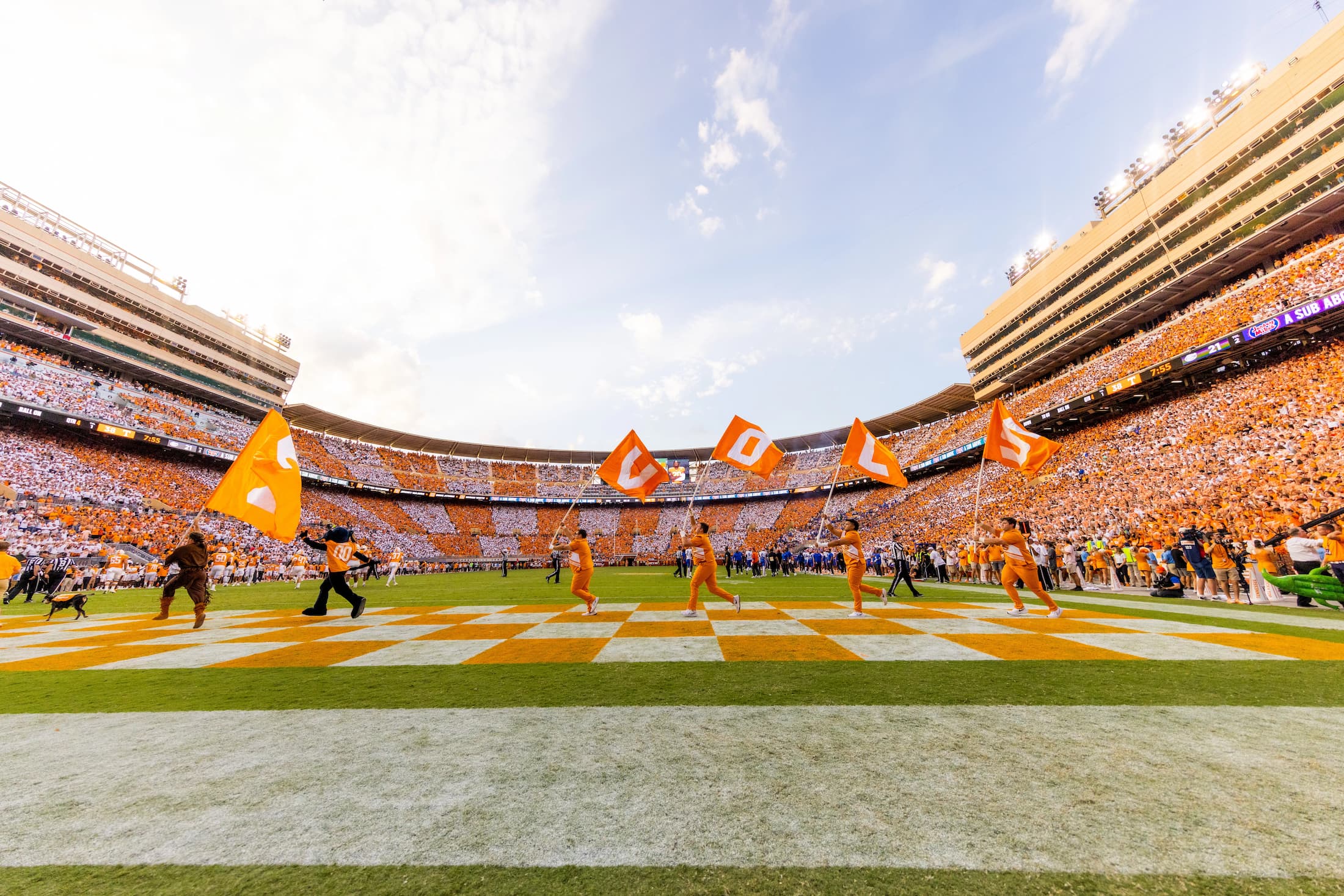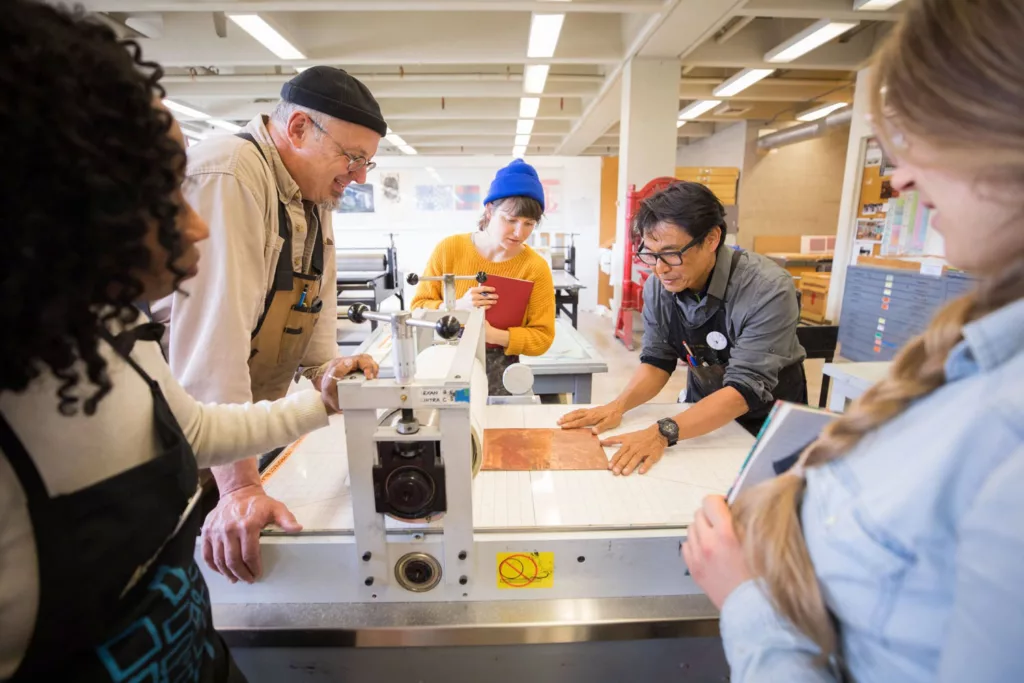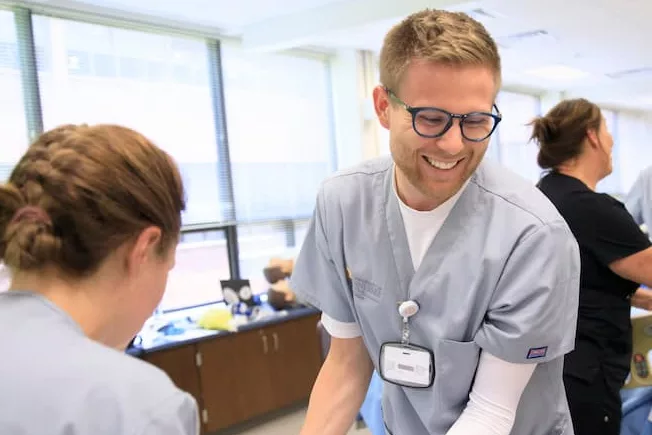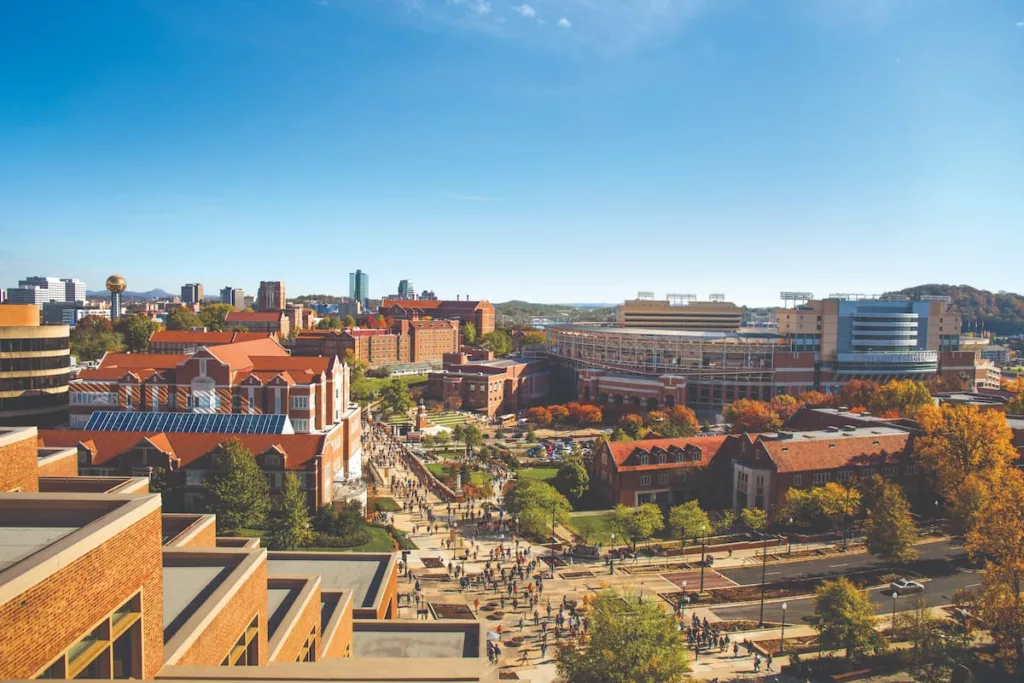
Join the Tradition
Become a Vol!
See yourself on Rocky Top—we think orange is your color.
Confirmation Deadline Extended to May 15.
Undergraduate
Start Your Application
We’ve made it easier than ever to apply for admission. Learn more about how to apply and the requirements to join our Volunteer family!
First-Year Students
First-year students are applying to attend college for the first time! Review admissions requirements for first-year students here.
Transfer Students
Interested in studying on campus or online but have credits from another college or university? Review admissions requirements for transfer admission here.
International Students
Review admissions requirements for international students or those living abroad.
Other Applicants
We’ve listed out admissions requirements for students seeking readmission, dual enrollment credit, or other ways to study at UT here!
First-Year
Important Dates
Nov. 1
Early Action Admission Application Deadline
Dec. 15
Regular Admission Application Deadline
Mar. 15
FAFSA Priority
Filing Date
May 15
Confirmation
Deadline
Decision Release Dates: Early Action is mid-December. Regular Admission is late February.
Explore Your Future
UT is a place where leadership and service are a way of life. Between the 360+ degree options, hands-on learning experiences, and endless opportunities, you’ll be calling Tennessee your home sweet home in no time.

Programs and Majors
Our 12 academic colleges offer 360+ major degree programs—find the one that ignites your passion.


I ultimately chose UT mostly because the people at UT seem to really want me to actually be here… And that seemed to really set UT apart from a lot of the other schools that I looked at.
Tyler Myers
Memphis, TN


Explore Rocky Top
We could tell you about Rocky Top, but it’s best to experience it for yourself!
Undergraduate
Cost & Aid
Get an amazing education that’s also affordable. From the moment you step foot on Rocky Top, you’ll be part of a family that wants to see you succeed and get the most out of your time as a Volunteer.
$86M
UT paid more than $86 million in aid for Fall 2022 first-year students.
90%
More than 90% of UT students graduate with little to no debt.
Ready to Apply?
We can’t wait to review your application for admission! Create a Go Vols account to start your application, or choose the University of Tennessee, Knoxville on your Common Application!
Request Information
Join our mailing list to stay up-to-date on the latest information and events happening on campus. It’s the best way to add a little orange to your mailbox!
Find My Counselor
Your admissions counselor will be with you every step of the way on your journey to Rocky Top! They’ll be more than happy to answer any questions you have and help you through the application process.
